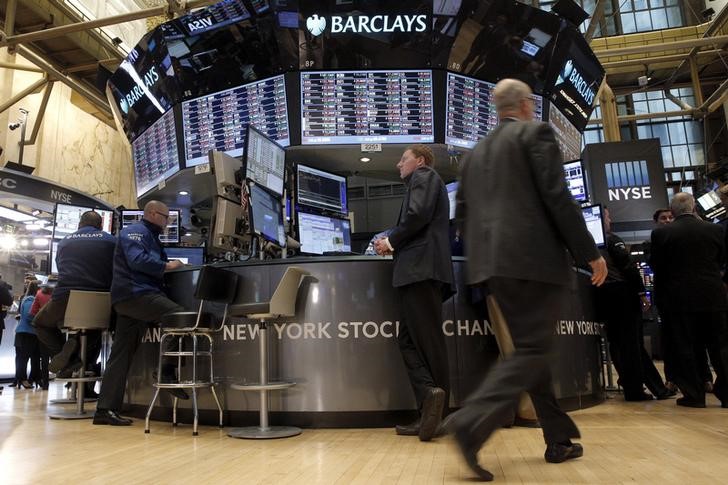 © Reuters.
© Reuters. By Geoffrey Smith
Investing.com — Oracle (NYSE:) wins the race for TikTok’s U.S. operations, Nvidia (NASDAQ:) splashes out $40 billion to buy ARM from Softbank (OTC:), while Gilead bets $21 billion on an experimental cancer drug. Stocks are set to open higher on more reassurances about a Covid-19 vaccine, but oil is down as BP (NYSE:) warns of an early peak to global oil demand. Here’s what you need to know in financial markets on Monday, September 14th.
1. Oracle wins the race for TikTok
Oracle took the lead in the race to be the savior of video-streaming service TikTok’s U.S. operations, but it’s still not clear whether the deal will be acceptable to regulators in China and the U.S.
The Wall Street Journal reported that Oracle is set to be announced as TikTok’s “trusted tech partner”, and that the deal won’t be structured as an outright sale.
The deal will need the approval of both U.S. and Chinese authorities. Should they give it, it would signal the de-escalation of the two powers’ multi-faceted battle for economic supremacy. U.S. authorities will want absolute certainty that TikTok user data can’t find its way back to Beijing, while China will need to rule that the deal doesn’t contravene a recently-passed law banning the sale of certain artificial intelligence technology. The yuan rose to its highest since May on positive interpretations of the news.
2. Nvidia pays Softbank $40 billion for ARM
Nvidia (NASDAQ:) agreed to buy U.K.-based chip designer ARM for $40 billion from Softbank (T:). That’s around $8 billion more than Softbank paid for it five years ago.
The news propelled the Japanese venture capital company’s shares another 9.0% higher, in a fresh sign of confidence in founder Masayoshi Son’s stewardship. Confidence had been hit hard by high-profile investment losses in companies such as WeWork and Uber (NYSE:).
Over half of purchase price will be paid in the form of Nvidia stock, giving Softbank continued exposure to the fast-growing high-performance chip sector. Only $12 billion will be paid in cash. The deal will need the approval of at least four regulators, in the U.S., U.K., EU and China.
3. Better news in Covid-19 vaccine hunt
Pfizer (NYSE:) CEO Albert Bourla said at the weekend that the vaccine it’s developing together with Germany’s BioNTech (NASDAQ:) could be available for distribution in the U.S. by the end of the year. Bourla told CBS there was a “good chance” of the companies being able to send data from the crucial phase 3 trial of their drug to the Food and Drug Administration by the end of October.
Also over the weekend, AstraZeneca (NYSE:) received approval from U.K. authorities to resume the phase 3 trial of its vaccine, being developed jointly with Oxford University.
However, the CEO of the Serum Initiative of India, the world’s biggest manufacturer of vaccines, warned that there isn’t enough production capacity to inoculate everyone who needs protection until 2024 at the earliest.
4. Stocks set to open higher; Gilead, Amazon seen in focus
U.S. stocks are set to open markedly higher on reassurances from the pharma sector about progress in the hunt for a vaccine to fight the Covid-19 virus.
By 6:30 AM ET (1030 GMT), the contract was up 218 points, or 0.8%, while the contract was up 1.1% and were up 1.4%.
Stocks likely to be in focus this morning include Microsoft (NASDAQ:), which was Oracle’s chief rival for the TikTok partnership, and Amazon (NASDAQ:), which announced it’s hiring another 100,000 in the U.S. and Canada.
There’ll also be some scrutiny of Gilead Sciences (NASDAQ:), which is set to pay $21 billion for Immunomedics (NASDAQ:), whose most valuable asset, an experimental drug to treat breast cancer, still hasn’t got FDA approval. Gilead is paying more than twice the market value for Immunomedics.
5. BP moves up forecast for peak oil demand
Crude oil prices drifted lower amid ongoing concerns about the supply-demand balance falling further out of kilter due to the slow recovery in parts of the global economy.
By 6:30 AM, futures were down 0.8% at $37.05 a barrel, while futures were down 0.7% at $37.55.
The mood was further soured by the publication of BP’s new outlook for the energy industry, which predicted that global oil demand will plateau as early as the mid-2020s before going into long-term decline. Most forecasts at the beginning of the year had put ‘peak oil demand’ no earlier than 2040.
Ironically, the morning’s data were more supportive of the demand recovery: and data both came in comfortably above expectations for July.



0 Comments:
Post a Comment